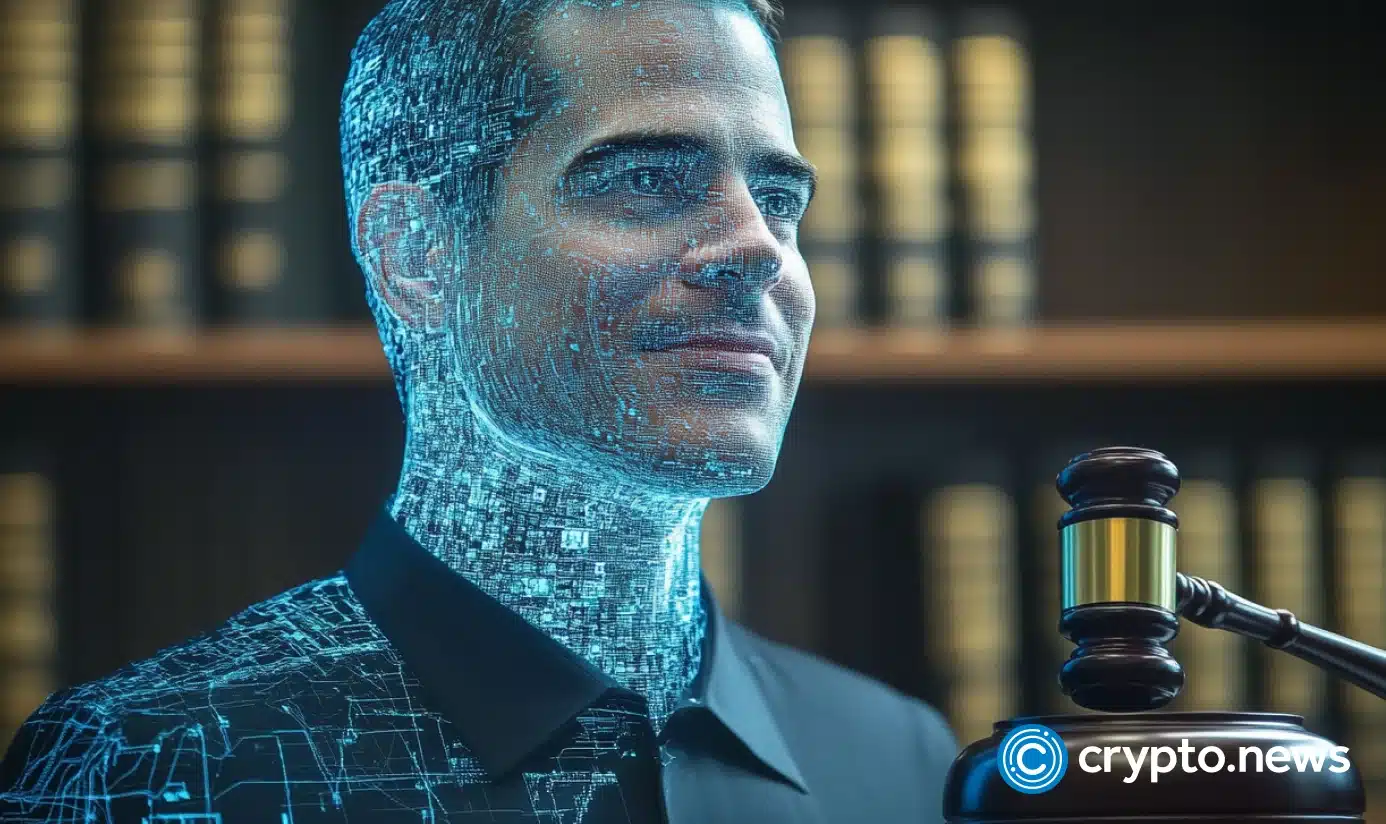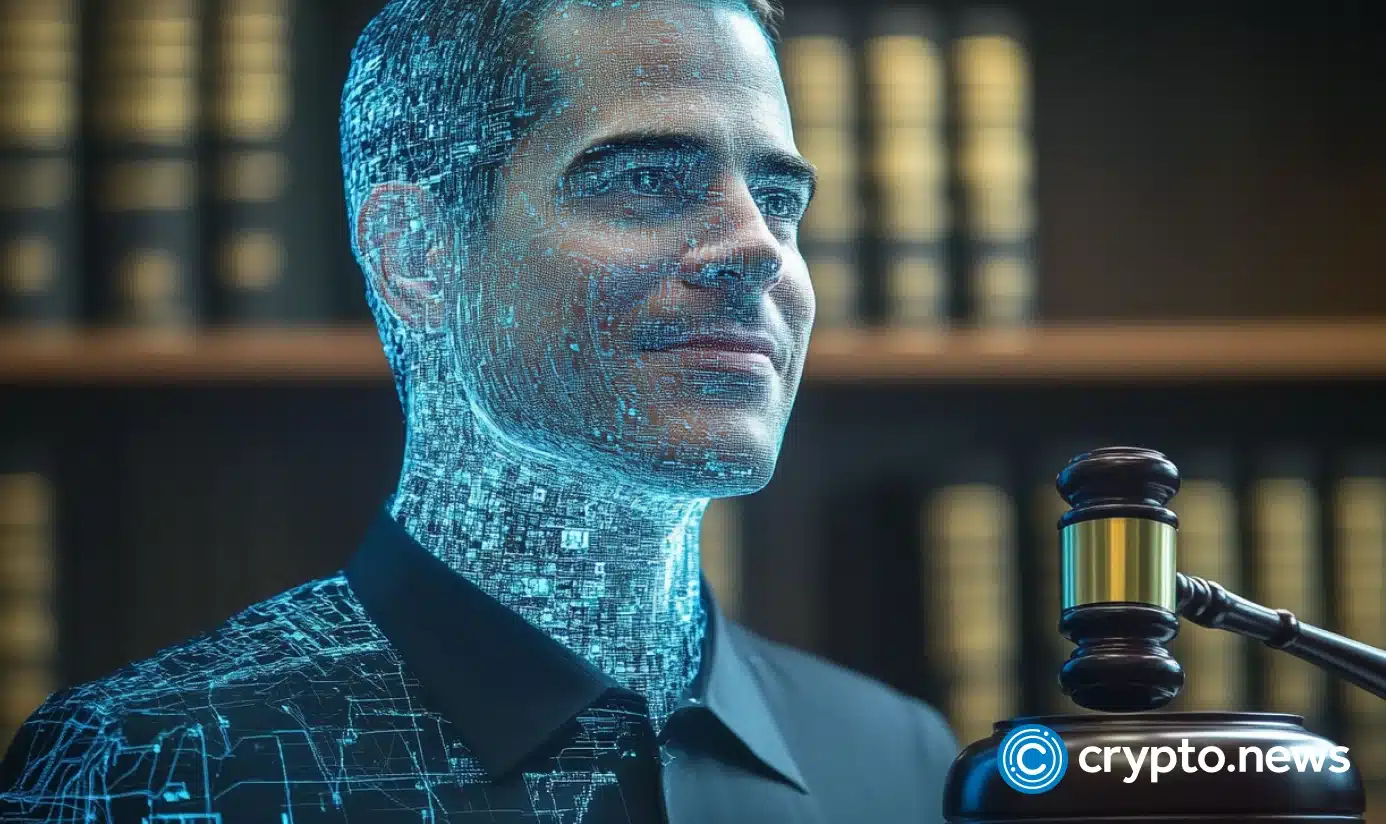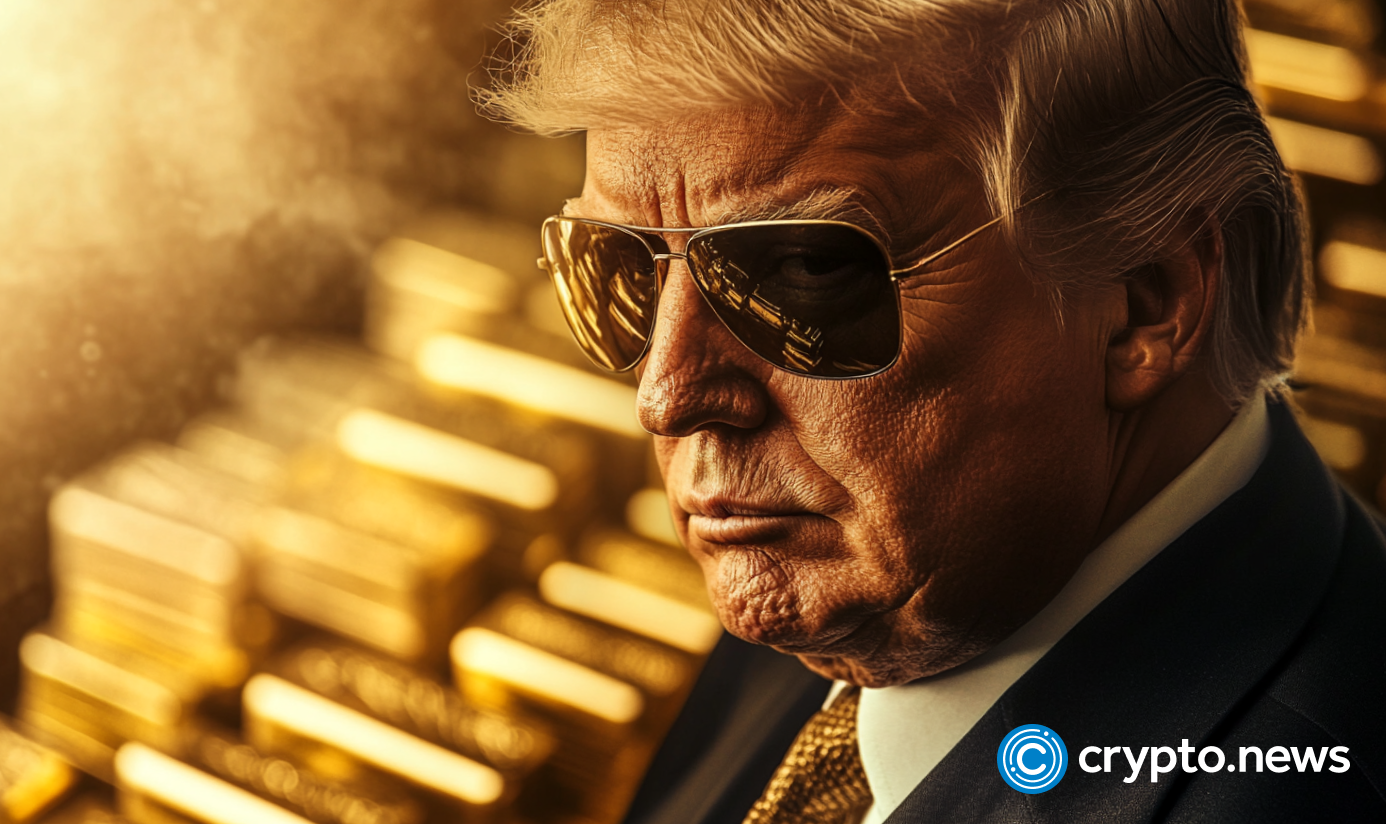elon musk
X Is Fiat
Published
2 months agoon
By
admin


In his Take from yesterday, Frank invited bitcoiners to join Nostr: “The world’s biggest bitcoin circular economy.” I endorse this invitation; Nostr aligns much better with Bitcoin’s original values than — specifically — Elon Musk’s X.
In much the same way that the money in your bank account isn’t really yours, your posts on X aren’t either — in contrast, your Nostr posts are connected to your own public key. Like PayPal blocking money transfers, X can decide to censor what you have to say, but no single entity has that power on Nostr. And while X manipulates its algorithm to steer the conversation like the Fed’s manipulation of interest rates to steer the economy, Nostr gives this power back to the users. Now that “President Musk” is de facto entering the White House, you could even argue X is becoming part of the government. X is fiat.
Perhaps even more importantly — at least for me personally — my experience on Nostr is by now superior to what I encounter on X… admittedly a low bar. Whereas I sometimes find interesting insights on Nostr, most of what I see on the platform formerly known as Twitter these days are generic TikTok-style memes, rage-bait, and shit takes from Kekius Maximus himself.
I do still post on X sometimes, but I’ve increasingly disengaged from the conversation over there and will likely continue to do so. Meanwhile, I’ve found myself spending more time on Nostr (specifically through Damus and Amesthyst), and I expect this to only increase.
Sure, Nostr is still niche for now, and perhaps it will remain niche compared to X. Judging by the hype around ETFs, MicroStrategy and Strategic Bitcoin Reserves, trusting central parties is pretty hip among many bitcoiners nowadays, anyways.
But I will gladly take Nostr’s niche signal over X’s noisy masses.
This article is a Take. Opinions expressed are entirely the author’s and do not necessarily reflect those of BTC Inc or Bitcoin Magazine.
Source link
You may like


Dogecoin (DOGE) Bulls In Trouble—Can They Prevent a Drop Below $0.15?


California introduces ’Bitcoin rights’ in amended digital assets bill


MELANIA Insider Hayden Davis Selling Millions of Dollars Worth of Memecoin Amid 95% Drop: On-Chain Data


Toulouse starts to accept crypto for public transport


Bitcoin, Crypto Prices Slide as Trade Tensions, Inflation Risks Rattle Markets


Will BlackRock Investors Stay Bullish?
Bitcoin
Trump pardons BitMEX, is ‘Bitcoin Jesus’ Roger Ver next?
Published
1 day agoon
March 30, 2025By
admin

Vitalik Buterin, Ross Ulbricht, and Tucker Carlson are among those urging President Donald Trump to pardon Roger Ver, aka Bitcoin Jesus.
Known as Bitcoin Jesus for his early advocacy of Bitcoin, Ver faces up to 109 years in prison on tax charges, including allegations of evading $48 million in taxes. Despite renouncing his U.S. citizenship in 2014 to avoid prosecution, Ver’s legal troubles resurfaced when he was arrested in Spain in 2024. But following the president’s earlier pardons of figures like Ulbricht and BitMEX co-founders, observers wonder whether Ver’s would catch a break. Is a pardon on the way, or will Ver’s legal troubles continue?
Read on for a closer look.
Crypto cronies
After Trump embraced cryptocurrency, many crypto leaders rallied to support him by donating funds to his inauguration and hobnobbing at galas.
Trump also , which industry brass celebrated.
In return, Trump signed an order to stockpile tokens and swiftly acted in favor of the industry. Under Trump-appointed SEC chair Mark Uyeda, investigations into several cryptocurrency companies, including Immutable, Crypto.com, Ripple, and Coinbase, were dismissed.
In a notable move on Thursday, March 27, Trump pardoned BitMEX co-founders Arthur Hayes, Benjamin Delo, and Samuel Reed, who had pleaded guilty to federal charges related to money laundering and regulatory violations. The trio was convicted for failing to implement anti-money laundering measures at BitMEX, which prosecutors had labeled a “money laundering platform.” Reed had also violated the Bank Secrecy Act and paid a $10 million fine. But under Trump, it seems all is forgiven.
This has sparked speculation on whether Ver, a prominent figure in the crypto world, could also receive the same courtesy.
Ver, a Silicon Valley native with a libertarian streak, was deeply involved in the early days of cryptocurrency, investing in companies like Kraken, Ripple, and Blockchain.com. In 2017, Ver hyped Bitcoin Cash (BCH) as more suitable for everyday payments.
Roger Ver was there for me when I was down and needed help. Now Roger needs our support.
No one should spend the rest of their life in prison over taxes. Let him pay the tax (if any) and be done with it. #FreeRoger pic.twitter.com/flP573hm0N
— Ross Ulbricht (@RealRossU) February 20, 2025
Ver’s past
In 2000, by the age of 20, Ver began to participate in libertarian party debates.
During these debates, he made critical statements about the agents of the Bureau of Alcohol, Tobacco, and Firearms, calling them “murderers” and referencing their involvement in the scandalous Waco Siege in which dozens of children were killed in a standoff between FBI and ATF agents and Branch Davidian cult followers. Ver didn’t know that ATF agents were present during these debates.
In the 2000s, Ver became involved in e-commerce. On top of tech enterprises, Ver was selling firecrackers on eBay. After selling unlicensed firecrackers in 2001, he was charged and spent 10 months in prison. The fact that he was locked in jail instead of being fined or notified about the necessity of obtaining a license led Ver to think that the case was politically motivated and that his criticism of ATF was the real reason behind his prosecution. Without fear of further persecution, Ver left the U.S. after his post-prison probation ended.
By 2011, Ver learned about Bitcoin and became one of its first investors. He also advocated for Bitcoin long before it went mainstream, with multi-million investments and national leaders talking about its importance for the future of their countries.
The key points of Ver’s advocacy for Bitcoin were the financial freedom of individuals and the stopping of government and banks from interfering in people’s lives.
The legal fight
Since February 2014, Ver has been a citizen of Saint Kitts and Nevis. He claims that he had to renounce his U.S. citizenship after long-lasting targeting from the U.S. government.
In April 2024, he was indicted and arrested in Spain on charges of U.S. tax evasion and mail fraud. Ver is accused of dodging $48 million in taxes after earning up to half a billion dollars through cryptocurrencies.
According to prosecutors, Ver failed to pay his “exit tax” on 131,000 BTC owned by his two companies when he left the U.S. and provided false info to the law firms filing Ver’s tax returns. Allegedly, he sold his bitcoins in 2017 without notifying the financial attorneys.
Ver clarifies that three charges of mail fraud (combined, punishable by 19 years behind bars) are based on the three letters with his tax returns he sent to the Internal Revenue Service (IRS).
Ver denies he committed crimes such as tax evasion and mail fraud. He insists he was doing his best to comply with the nascent Bitcoin taxation rules, and that his prosecution was politically motivated.
In December, he began his legal fight against the prosecution, denying all the charges. He filed a motion to dismiss charges, but the government rejected it in January.
Ver’s legal team challenged an exit tax as “an unconstitutional burden on the fundamental right to expatriate.” For people like Ver, who have substantial amounts of low-liquidity assets, the exit tax may be prohibitive. The government suggests Ver is a fugitive. He disagrees with this status as he doesn’t hide and didn’t commit crimes for which he is judged while living in the U.S.
On March 1, Ethereum’s Buterin published an X post arguing that the exit tax doesn’t exist in most other countries and called it the “tax-by-citizenship” and “extreme.”
In addition, Buterin mentioned that the IRS obtained some of the information by intimidating Ver’s lawyers. The Ethereum founder added:
“Genuine good faith mistakes should be treated by giving the actor the opportunity to pay back taxes if needed with interest and penalties, not with prosecution.”
Going to prison for the rest of your life over non-violent tax offenses is absurd. The case against Roger seems very politically motivated; like with @RealRossU, there have been plenty of people and corporations who have been accused of far worse and yet faced sentences far… https://t.co/7G3zDkn2F2
— vitalik.eth (@VitalikButerin) March 1, 2025
Will Bitcoin Jesus be pardoned?
Trump promised to pardon Ross Ulbricht if get elected. Ulbricht, the man behind the Silk Road marketplace charged for money laundering and drug trafficking, is an important figure in the history of Bitcoin as his marketplace drove Bitcoin’s adoption. After the inauguration, Trump indeed pardoned Ulbricht to much acclaim.
Soon, various crypto advocates began to urge Trump to pardon Roger Ver. On Jan. 21, 2025, following the pardon of Ross Ulbricht, an X influencer using the moniker Rothmus published a short post calling for the pardon of Ver to which Elon Musk replied: “will inquire.” This reply gave the community hope for the pardon of Bitcoin Jesus.
https://twitter.com/Rothmus/status/1881536312710402268
On March 17, Marla Maples, Trump’s ex-wife, took to X to share a touching video where people who met Ver tell their stories of his generosity.
It is not clear, though, if the POTUS paid attention to this post.
The hope for a pardon of Ver was seriously undermined on Jan. 26, when Elon Musk suddenly, via an X post, stated that Ver would not be pardoned because he gave up his U.S. citizenship.
Roger Ver gave up his US citizenship. No pardon for Ver. Membership has its privileges.
— Elon Musk (@elonmusk) January 26, 2025
The statement drew much criticism, as Musk is not an elected official and cannot decide who to pardon and who not to. He is, however, Trump’s advisor and was a major donor to his “MAGA” campaign.
More than that, the POTUS is not prohibited from pardoning non-U.S. citizens. Finally, many commented that Ver had to renounce his citizenship under pressure from ATF and a U.S. prison sentence.
I missed this tweet.
Another time I will publicly criticize Elon, hopefully for his own benefit. Because this is a terrible and wildly ignorant “hot take”.
1) You don’t need to be a citizen to get a pardon.
2) Ver was a citizen and specifically renounced his U.S. citizenship in…— Viva Frei (@thevivafrei) January 27, 2025
A few hours after Musk’s tweet, Ver took X to post a video in which he briefly explained why he was prosecuted and asked Trump for a pardon.
In the video, Ver stated that he is American and that renouncing his citizenship was one of the “hardest and saddest decisions [he] ever made.”
After Ulbricht, Hayes, Delo, and Reed received presidential pardons, others, including Angela McArdle, who currently serves as Chair of the national Libertarian Party, called for freeing Ver as well.
“Let’s pray Roger Ver is next!” she declared on Friday.
It remains to be seen whether Musk made skeptical comments over the possibility of Ver’s clemency on Trump’s behalf or if it was only his view of the situation.
At last check Saturday, Trump hasn’t commented on Ver’s situation.
Source link
Bitcoin
If gold isn’t there, we’re gonna be very upset
Published
1 month agoon
February 20, 2025By
admin

Elon Musk raised concerns about whether Fort Knox is still holding $425 billion worth of gold. The posts reignited an old conspiracy theory about gone gold and sparked discussion about the advantages of Bitcoin. Donald Trump said he will audit “the fabled Fort Knox.”
As a head of the Department of Government Efficiency Musk has been busy scrutinizing the government institutions lately. Fort Knox was another target for his daring eyes as Musk published an X post saying that “it would be cool to do a live video walkthrough of Fort Knox.”
Sen. Mike Lee fueled the discussion when he replied to Musk that despite being a senator, he was denied access to Fort Knox on multiple occasions without a proper cause. Musk replied that the American public was the true owner of gold stored in Fort Knox and asked if someone could confirm the gold was there.
Who is confirming that gold wasn’t stolen from Fort Knox?
Maybe it’s there, maybe it’s not.
That gold is owned by the American public! We want to know if it’s still there. https://t.co/aEBXK1CfD6
— Elon Musk (@elonmusk) February 17, 2025
The discussion continued with many expressing support for the idea of a public audit of the biggest gold reserve in the U.S. The Fort Knox reserve holds 147 troy ounces of gold, more than any other storage in the country.
Missing Fort Knox gold is an old conspiracy theory, infused by the extremely low level of the reserve’s transparency. It is hard to enter this storage even by the military base standards.
The inability to make sure gold is present in the depository raises questions about accountability and transparency standards revision.
Does Fort Knox undergo regular audits?
Regular audits take place. The U.S. government issues monthly reports that specify the amount of gold stored in every storage. The proponents of the missing gold theory don’t buy these reports and want to get evidence. However, the restrictive policies that don’t allow visitors to Fort Knox only make people more suspicious.
Probably, you saw a striking statement that Fort Knox hasn’t been audited for 50 years. That’s not far from the truth.
Indeed, the last public audit of Fort Knox took place on Sept. 24, 1974, when several congressmen and journalists were allowed in the depository. They entered the storage, inspected the gold, and took photos. The previous tone when Fort Knox had such an audit took place in 1943.
The press release dedicated to the 1974 visitation proclaimed that the event marked a change in the long-standing no-visitors policy. According to it, the Congressional inspection adhered to President Ford’s new policy of open doors. However, as we know today, the Fort Knox doors were closed shortly after the visit for the next 40+ years.
During the previous Donald Trump presidency, in 2017, then-Treasury Secretary Steven Mnuchin managed to obtain permission to visit the bullion depository accompanied by Kentucky elected officials. Unlike the 1974 inspection, this event was pretty private, with no media present.
Mnuchin received backlash for the inappropriate use of military aircraft to travel to Fort Knox, spending an additional $9k of the taxpayers’ money.
The fact that the visitation took place on the very day of the total solar eclipse, which Mnuchin observed from the roof of Fort Knox, which is situated close to the Path of Totality, one of the best points to look at the eclipse, raised additional criticism. The photos of him and his peers in front of golden bricks were published in 2018. This tour to Fort Knox hardly adheres to the criteria for audit.
The is no evidence that any portion of the Fort Knox gold is missing. However, the lack of transparency and clear accountability set a good climate for speculations and alternative solutions.
Bitcoin enters the discussion
Gold is often compared to Bitcoin, especially now, when national gold reserves are not such a hot topic as Bitcoin reserves. No wonder the inability to verify the consistency of the gold reserves draws discussions in the crypto community.
Whether Fort Knox gold is safe or not, Bitcoin is an asset that would not have raised any of these concerns, Bitcoin proponents say.
More and more experts claim Bitcoin is better than gold. In light of the Fort Knox case, Bitcoin showcases higher transparency and ease of user and transportation. It’s much easier to cross the border with $5 million worth of Bitcoin than gold or cash. More than that, the ownership of Bitcoin is verifiable by any person with a device connected to the Internet. The Fort Knox situation reminds us that we don’t have such a possibility with gold.
More than that, more traditional assets like Bitcoin ETFs or ETPs are as transparent as Bitcoin. Bradley Duke of Bitwise took to X to remind everyone why Bitcoin is much more trustworthy than gold. He said why trust when you can verify?
Don’t trust, verify.
For decades there hasn’t been an independent audit of the gold bullion kept at Fort Knox – the largest treasure ever amassed. Should the American people, who nominally own this treasure, just trust their successive governments?
At Bitwise, we believe that… pic.twitter.com/8DKSaY676n
— Bradley Duke (@BradleyDukeBTC) February 18, 2025
Bernstein analytics say the U.S. will need gold to buy Bitcoin
One of the reasons why Bitcoin maxis may be concerned by the possible lack of gold in the bullion depository is that at some point, the American government will start selling gold to acquire more Bitcoin.
According to Gautam Chhugani, an analyst from Bernstein, if a Strategic Bitcoin reserve is established, the Federal Reserve will have to search for funds to purchase Bitcoin. It may issue debt (which is opposite to the proclaimed goal of setting the Strategic Bitcoin reserve) or sell some of the gold reserves.
Musk’s concerns didn’t go unnoticed by the POTUS. On Feb. 20, Musk posted a clip with Trump saying they are going to inspect “the fabled Fort Knox to make sure the gold is there.” “If the gold isn’t there, we’re gonna be very upset,” Trump added, smiling.
Source link


Welcome to The Protocol, CoinDesk’s weekly wrap-up of the most important stories in cryptocurrency tech development. I’m Ben Schiller, CoinDesk’s Opinion and Features editor.
In this issue:
- Movement Labs rolls out dev mainnet
- Cardano hard forks to decentralized governance
- SSV DAO unveils SSC 2.0
- Musk pushes blockchain in government
Network News
MOVEMENT LABS ROLLS OUT DEVNET: Blockchain firm Movement Labs has deployed a developer mainnet to advance its goal of bringing Facebook (META)’s Move Virtual Machine (MoveVM) to Ethereum. The developer mainnet’s launch will begin the deployment of Movement’s core infrastructure and allow selected partners to start implementing decentralized finance (DeFi) protocols, according to an emailed announcement on Tuesday. The release follows the initial mainnet launch of Movement in December and precedes the planned public mainnet beta release next month. Move was developed as a part of Facebook’s ill-fated digital currency project Diem, which was shelved at the start of 2022. The technology was also used to create the Sui and Aptos layer-1 networks. Movement Labs, with the help of a $38 million Series A funding round led by Polychain Capital, is extending the programming language to an Ethereum layer 2 for the first time. Coinciding with the public mainnet’s deployment, Movement will also unveil a multi-asset liquidity program to provide the foundation for decentralized finance (DeFi) applications. Read more.
CARDANO HARD FORKS TO DECENTRALIZATION: Proof-of-stake blockchain Cardano was due to switch to decentralized governance Jan. 29 after the Plomin hard fork takes effect, Cardano Foundation, a non-profit organization backing the project, said on X. “The Plomin hard fork takes effect, marking the transition to full decentralized governance. ADA holders gain real voting power – on parameter changes, treasury withdrawals, hard forks, and the blockchain’s future,” Cardano Foundation said. “[It’s] A milestone in blockchain governance.” Cardano’s ADA token changed hands at 93 cents at press time, up 1.4% on the day, according to data from CoinDesk and TradingView. A hard fork is a non-backwards compatible change to the blockchain’s programming. The Plomin hard fork needs Stake Pool Operators to upgrade their nodes and approve the upgrade with a 51% vote. As of last week, nearly 80% of nodes had elevated to the new version. Read more.
SSV DAO 2.0: The SSV DAO, the decentralized autonomous organization behind the decentralized staking protocol SSV Network, unveiled a new framework, called “SSV 2.0,” allowing applications to make use of “based” technology by leveraging Ethereum validators. SSV 2.0 will be the most ambitious project for the SSV Network, according to a press release shared with CoinDesk, and will bring based applications (bApps) to Ethereum. “Based” applications, especially “based rollups,” are a new type of technology attracting the attention of Ethereum developers as it allows for better interoperability while improving the security of networks on top of Ethereum. Based rollups specifically can be seen as a solution to the many layer-2 networks on Ethereum today, which have caused much fragmentation across the space. By leveraging “based” technology, those protocols or applications can “base” their security and execution operations off of Ethereum’s layer-1 validator set. Currently, layer-2 networks use “sequencers” to order transactions and post those back to Ethereum. Sequencers are criticized for being single points of failure. By using layer-1 validators to do the execution and security work, networks can avoid the downfalls of using centralized sequencers. Ethereum developers agree that based rollups allow for better interoperability in the network. Ethereum ecosystem members have gathered over the last few weeks to find ways to solve this issue, and based rollups are seen as a major breakthrough for that. Now the SSV Network will also tackle these issues by bringing applications with based technology to Ethereum. Read more.
MUSK PUSHES BLOCKCHAIN: in his role leading the new Department for Government Efficiency (D.O.G.E.), Elon Musk suggested that using a digital ledger would be a cost-efficient way to track federal spending, secure data, make payments and manage buildings, according to people familiar with the matter. Several representatives of public blockchains have met with affiliates of D.O.G.E., the people said. The department was created in response to the federal government’s spending of $6.7 trillion in fiscal 2024, which Musk in October called “wasted” money. He promised the department — whose acronym is a nod to Musk’s favorite cryptocurrency, dogecoin (DOGE) — would slash the figure to at most $2 trillion. Given the department’s name and Trump’s determination to establish crypto-friendly policies in the U.S., Musk’s plan to incorporate blockchain technology doesn’t come as a surprise. In addition to creating D.O.G.E. on Jan. 20, Trump signed an executive order to create a working group on digital assets led by venture capitalist David Sacks with a mandate to identify all regulations that currently touch crypto within 30 days, among other things. Read more.
Money Center
XRP Strategic Reserve
- Ripple’s Brad Garlinghouse has ignited a debate about a putative national crypto reserve, saying “I believe it should be representative of the industry, not just one token (whether it be BTC, XRP or anything else).” Bitcoiners hope it will be a bitcoin-only reserve.
DeepSeek Hits Tokens
Regulatory and policy
Calendar
Source link

Dogecoin (DOGE) Bulls In Trouble—Can They Prevent a Drop Below $0.15?

California introduces ’Bitcoin rights’ in amended digital assets bill

MELANIA Insider Hayden Davis Selling Millions of Dollars Worth of Memecoin Amid 95% Drop: On-Chain Data

Toulouse starts to accept crypto for public transport

Bitcoin, Crypto Prices Slide as Trade Tensions, Inflation Risks Rattle Markets

Will BlackRock Investors Stay Bullish?

Bitcoin Could Appear on 25% of S&P 500 Balance Sheets by 2030, Analyst Says

Centralization and the dark side of asset tokenization — MEXC exec

Bitcoin Support Thins Below $78,000 As Cost Basis Clusters Shift Toward $95,000

Cryptocurrencies to watch this week: Solana, Cronos, DOT

EU Regulator Pushes for New Capital Rules for European Insurers Holding Crypto Assets

Japan Set To Classify Cryptocurrencies As Financial Products, Here’s All

This Week in Crypto Games: ‘Off the Grid’ Token, GameStop Goes Bitcoin, SEC Clears Immutable

Binance debuts centralized exchange to decentralized exchange trades

Why Is the Crypto Market Down Today? Bitcoin Drops to $82K as Traders Flee Risk Assets Amid Macro Worries

Arthur Hayes, Murad’s Prediction For Meme Coins, AI & DeFi Coins For 2025

Expert Sees Bitcoin Dipping To $50K While Bullish Signs Persist

Aptos Leverages Chainlink To Enhance Scalability and Data Access

Bitcoin Could Rally to $80,000 on the Eve of US Elections

Sonic Now ‘Golden Standard’ of Layer-2s After Scaling Transactions to 16,000+ per Second, Says Andre Cronje

Institutional Investors Go All In on Crypto as 57% Plan to Boost Allocations as Bull Run Heats Up, Sygnum Survey Reveals

Crypto’s Big Trump Gamble Is Risky

Ripple-SEC Case Ends, But These 3 Rivals Could Jump 500x

Has The Bitcoin Price Already Peaked?

A16z-backed Espresso announces mainnet launch of core product

Xmas Altcoin Rally Insights by BNM Agent I

Blockchain groups challenge new broker reporting rule

The Future of Bitcoin: Scaling, Institutional Adoption, and Strategic Reserves with Rich Rines

Trump’s Coin Is About As Revolutionary As OneCoin

Is $200,000 a Realistic Bitcoin Price Target for This Cycle?
Trending

 24/7 Cryptocurrency News5 months ago
24/7 Cryptocurrency News5 months agoArthur Hayes, Murad’s Prediction For Meme Coins, AI & DeFi Coins For 2025

 Bitcoin2 months ago
Bitcoin2 months agoExpert Sees Bitcoin Dipping To $50K While Bullish Signs Persist

 24/7 Cryptocurrency News3 months ago
24/7 Cryptocurrency News3 months agoAptos Leverages Chainlink To Enhance Scalability and Data Access

 Bitcoin5 months ago
Bitcoin5 months agoBitcoin Could Rally to $80,000 on the Eve of US Elections

 Altcoins2 months ago
Altcoins2 months agoSonic Now ‘Golden Standard’ of Layer-2s After Scaling Transactions to 16,000+ per Second, Says Andre Cronje

 Bitcoin5 months ago
Bitcoin5 months agoInstitutional Investors Go All In on Crypto as 57% Plan to Boost Allocations as Bull Run Heats Up, Sygnum Survey Reveals

 Opinion5 months ago
Opinion5 months agoCrypto’s Big Trump Gamble Is Risky

 Price analysis5 months ago
Price analysis5 months agoRipple-SEC Case Ends, But These 3 Rivals Could Jump 500x


